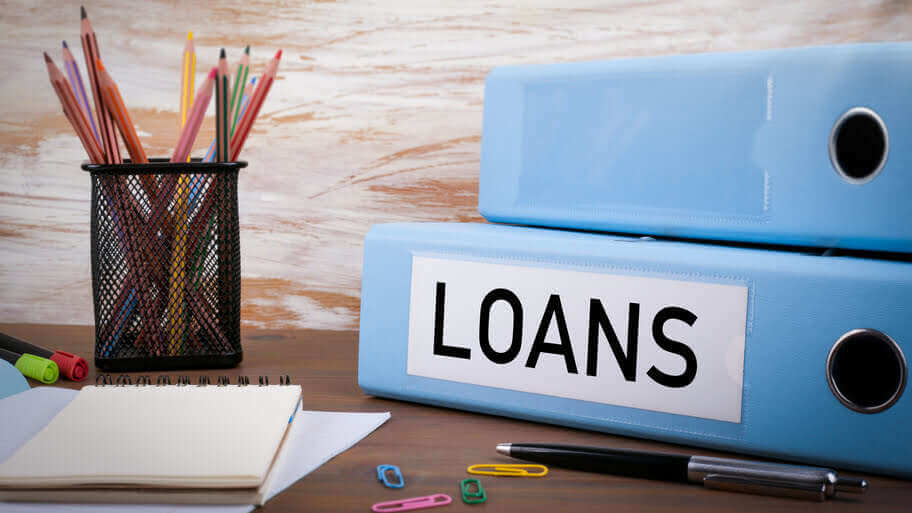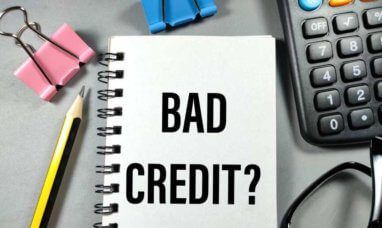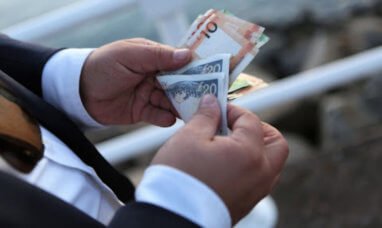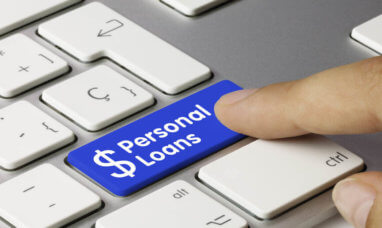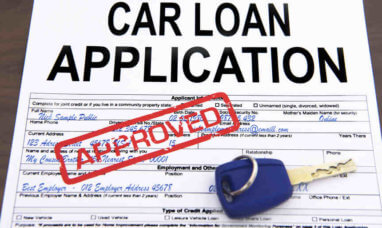Are you in need of cash? If you’ve been unable to get loans in the past due to bad credit, there are still avenues available. No-credit-check loans are one option to explore for emergencies or unexpected expenses. The best thing about no-credit-check loans is that they are easy to qualify for.
Keep reading to learn how no-credit-check loans work, and if getting one might be a good option for you.
What Are No-Credit-Check Loans?
Most lenders run a credit check to decide whether to lend you money and at what interest rate. Your credit report reveals what lines of credit you have out and if you tend to make your payments on time. If you have a bad credit score, lenders may see you as too much of a risk and refuse your loan application. This prevents many people from getting a personal loan when they need it.
As the name suggests, no-credit-check loans are personal loans that don’t run a credit check to determine if you qualify. However, to make up for the added risk to lenders, these loans come at a high cost.
No-credit-check loans tend to have very high interest rates. The rates may be as high as 400%! Additionally, some no-credit-check lenders require you to pledge a personal asset, such as a car or investment account, when acquiring a loan. Pledging your property gives these lenders the legal right to repossess your asset if you do not meet the repayment terms.
Borrowers with bad or damaged credit are the most common customers for such loans. Poor credit means that your credit score ranges from 300 to 579. If you have a credit score within this range, you may not be able to qualify for a conventional loan.
There are different types of no-credit-check loans and various lenders who offer them.
Where Can You Get No-Credit-Check Loans?
Though no-credit-check loans are not common, there are some lenders who may be willing to offer you this solution.
1. Payday Loan Shops
Payday loans are designed to last you until your next paycheck, but they come with sky-high interest rates. They also offer you the opportunity to take out multiple loans if you cannot repay your current one. But be careful as doing so can trap you in a cycle of debt, leading you to more financial difficulties than if you never took the loan to begin with.
Payday loan stores typically offer you the funds in cheques, cash, or via a direct deposit to your account. Repayments are usually due within two to four weeks.
To apply for a payday loan, you need to present:
-
-
-
-
- Your bank account
- Identification, and
- Proof of a regular paycheck
-
-
-
Is it possible to borrow payday loans with no credit check and no employment verification?
Yes. You can get a payday loan if you are not employed but can prove that you have some income. These earnings might be from:
-
-
-
-
- Regular deposits from shares
- Self-employment income, or
- Other periodic payments
-
-
-
2. Auto Title Lenders
These lenders primarily work online, though you may be able to find a physical location in your neighborhood.
They usually offer you a costly loan with your vehicle’s title as collateral. The amount of loan you are eligible for depends on your car’s value. You can typically get a title loan for between 25% and 50% of the value of your vehicle.
Many auto title lenders will only repossess your car if you default on your loan. The key requirement for this loan is that you must be the legal owner of the vehicle at the time of applying.
3. Online Lenders
Some online lenders extend title or payday loans. A good example is the fax-less payday loan. These are quick payday loans with no credit checks and no faxing. You can apply online to enjoy fast approval once you sign a virtual contract.
4. Pawn Stores
These are shops that “buy” your property for a short period, often 30 days. These shops will usually give you a ticket which you need as proof of the pawned item. The lenders will give back the pawned property once you clear your loan. If not, it will be sold.
5. Personal Installment Lenders
A personal installment loan requires you to make scheduled installment payments. After the loan is repaid in full, your account is permanently closed.
What’s the Issue With No-Credit-Check Loans?
When you are in a financial bind, no-credit-check loans might look like a way out. If you get a relatively small loan you know you can pay back on time, maybe a $700 loan with no credit check, this may be a decent option for you. However, you should exhaust all other options before taking out one of these loans. Here are some of the cons of no-credit-check loans that you should consider before applying:
1. They Are Costly
When you take out a no-credit-check loan, you will pay for the convenience of easily qualifying. No-credit-check loans such as payday loans charge an APR of about 400%. In contrast, standard bad credit loans that require a credit check charge an APR of about 30%. This is over ten times lower.
The high interest rates make payday loans illegal in some states.
2. They Worsen Your Debt
No-credit-check loan lenders know that borrowers are likely experiencing financial troubles and may not be able to repay the loan. So, they offer you the ability to take out a new loan to repay your old one for an extra fee.
Though you get an extended repayment period, this pushes you deeper into debt. With an even higher interest rate, you are more likely to be unable to repay the loan.
3. They Do Nothing for Your Credit Score
No-credit-check lenders do not report your repayment to credit bureaus. Even if you make your repayments on time, you will not increase your credit score. This might seem beneficial if your repayments are off schedule, but it also does not give you an opportunity to build your credit.
Alternatives to No-Credit-Check Loans
Even with damaged credit, there may be better options available for financial support that don’t have exorbitant interest rates.
1. Co-Signer Loans
You could request a trusted friend or family member to co-sign a loan with you. This means that they will be held responsible for repaying the loan if you are unable to do so. If the co-signer has excellent credit, lenders are more likely to grant you a loan and offer a favorable interest rate, even if your own credit is poor.
2. Secured Credit Cards
Some credit card issuers do not do credit checks for secured credit cards. These cards require you to deposit an amount of cash similar to your credit limit. The deposit will be refunded if you repay your bills on time.
3. Loans from Credit Unions
If you are a member of a credit union, you can enjoy better terms on a loan. Loans from credit unions typically cost less than those from for-profit financial establishments. Federal credit unions cap the interest rate at 18%.
4. Bad Credit Personal Loans
This type of loan targets people with bad credit. They have higher interest fees than traditional personal loans, but better rates than no-credit-check loans. With bad credit lenders, you may be able to get a personal loan with a credit score as low as 400.
5. P2P Loans with No Credit-Check
Peer-to-peer or P2P offers personal loans to individuals with damaged credit. P2P loans allow you to request a loan from an individual or group of people instead of a financial institution, with an interest fee of between 1% and 8% of the initial loan amount.
Final Thoughts
If you have a low credit score, don’t despair. You have options to get the funds that you need.
While a no-credit-check loan may seem like the easiest option for you right now, taking out a loan with a high interest rate may only cause further financial strain. Luckily, there are alternatives to these loans that may help you save on interest and reduce the full cost of borrowing. Explore all of the alternatives before taking out a no-credit-check loan.
Featured Image: Twenty20
